African American Studies

|
The Practice of Citizenship: Black Politics and Print Culture in the Early United States | In The Practice of Citizenship: Black Politics and Print Culture in the Early United States, Derrick R. Spires examines the parallel development of early black print culture and legal and cultural understandings of U.S. citizenship, beginning in 1787, with the framing of the federal Constitution and the founding of the Free African Society by Absalom Jones and Richard Allen, and ending in 1861, with the onset of the Civil War. Between these two points he recovers understudied figures such as William J. |
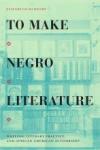
|
To Make Negro Literature: Writing Literary Practice and African American Authorship | In To Make Negro Literature Elizabeth McHenry traces African American authorship in the decade following the 1896 legalization of segregation. She shifts critical focus from the published texts of acclaimed writers to unfamiliar practitioners whose works reflect the unsettledness of African American letters in this period. Analyzing literary projects that were unpublished, unsuccessful, or only partially achieved, McHenry recovers a hidden genealogy of Black literature as having emerged tentatively, laboriously, and unevenly. |
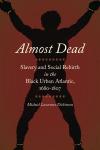
|
Almost Dead: Slavery and Social Rebirth in the Black Urban Atlantic | Beginning in the late seventeenth century and concluding with the abolition of the Atlantic slave trade, Almost Dead reveals how the thousands of captives who lived, bled, and resisted in the Black Urban Atlantic survived to form dynamic communities.Michael Lawrence Dickinson uses cities with close commercial ties to shed light on similarities, variations, and linkages between urban Atlantic slave communities in mainland America and the Caribbean. |
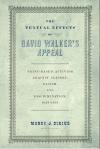
|
The Textual Effects of David Walker's "Appeal" Print-Based Activism Against Slavery, Racism, and Discrimination, 1829-1851 | Historians and literary historians alike recognize David Walker's Appeal to the Coloured Citizens of the World (1829-1830) as one of the most politically radical and consequential antislavery texts ever published, yet the pamphlet's significant impact on North American nineteenth-century print-based activism has gone under-examined. In The Textual Effects of David Walker's "Appeal" Marcy J. Dinius offers the first in-depth analysis of Walker's argumentatively and typographically radical pamphlet and its direct influence on five Black and Indigenous activist authors, Maria W. |

|
The Strangers Book: The Human of African American Literature | The year 1845 saw the publication of two key texts in the African American literary tradition: Frederick Douglass’s Narrative of the Life of Frederick Douglass, American Slave, Written by Himself and a collection of francophone poetry published in New Orleans by a group of free men of color and titled Les Cenelles: Choix des poésies indigènes. |

|
Fugitive Texts: Slave Narratives in Antebellum Print Culture | Antebellum slave narratives have taken pride of place in the American literary canon. Once ignored, disparaged, or simply forgotten, the autobiographical narratives of Frederick Douglass, Harriet Jacobs, and other formerly enslaved men and women are now widely read and studied. One key aspect of the genre, however, has been left unexamined: its materiality. What did original editions of slave narratives look like? How were these books circulated? Who read them? |
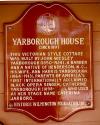
|
Caterina Jarboro, the 1898 Wilmington Riot, and the Challenges of the Archive | Instances of mass assaults on African American communities in the late nineteenth and early twentieth centuries have received increased attention over the past couple of decades. Among the more notable of these tragic events is the riot that occurred in Wilmington, North Carolina in 1898 that involved not just attacks on African American citizens but also the forceful overthrow of the city government. |
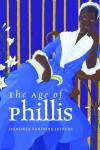
|
Phillis Wheatley Peters and African Lineage and Kinship in The Age of Phillis | In her newest book of poetry, The Age of Phillis, Honorée Fanonne Jeffers uses creative strategies based upon fifteen years of archival research to shift emphasis away from the usual historical narratives on Phillis Wheatley Peters. Scholars of Wheatley Peters have usually focused on her life following her enslavement as a small child, beginning her biography with her 1761 arrival in Boston Harbor. |
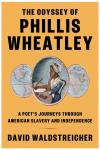
|
The Odyssey of Phillis Wheatley: A Poet’s Journeys Through American Slavery and Independence | Admired by George Washington, ridiculed by Thomas Jefferson, published in London, and read far and wide, Phillis Wheatley led one of the most extraordinary American lives. Seized in West Africa and forced into slavery as a child, she was sold to a merchant family in Boston, where she became a noted poet at a young age. Mastering the Bible, Greek and Latin translations, and the works of Pope and Milton, she composed elegies for local elites, celebrated political events, praised warriors, and used her verse to variously lampoon, question, and assert the injustice of her enslaved condition. |
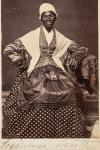
|
Sojourner Truth Was A New Yorker, and She Didn’t Say That | Sojourner Truth Was A New Yorker. Sojourner Truth was a New Yorker from the Hudson Valley, a fact of great importance in her own life but ordinarily overlooked in her historical persona. Even though American culture has become more attuned to Black history and more understanding of the complexities of Black identity, Truth is still unwittingly confused with Harriet Tubman, another figure of enormous historical importance who was from the South, from Maryland. |